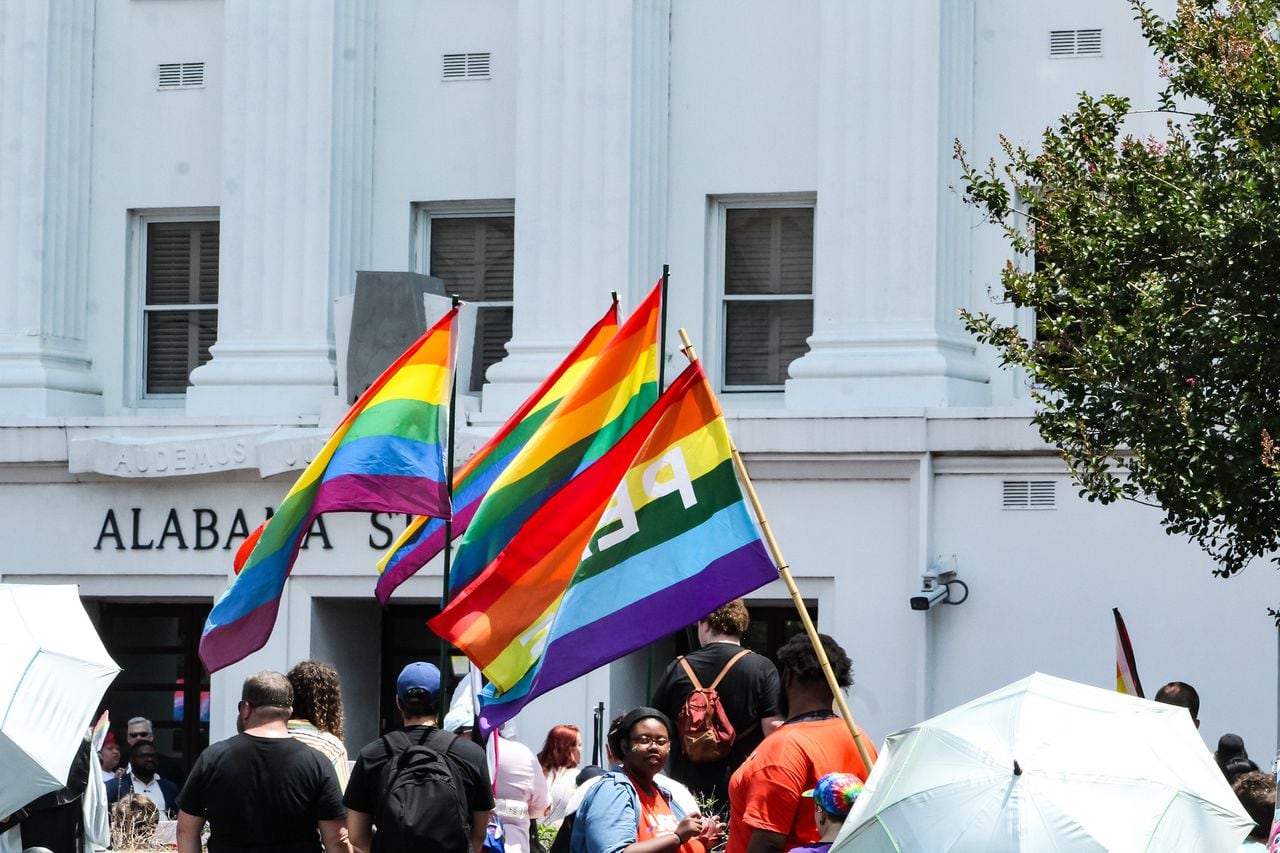Alabama bill to criminalize some flag displays on public property put on hold
Alabama legislation restricting what kind of flags are displayed on public property is on hold as lawmakers examine ways to clean up the language within the bill.
Under SB4, sponsored by Sen. Gerald Allen, R-Tuscaloosa, flying unapproved flags on public grounds like schools and government buildings could lead to a Class C misdemeanor conviction and up to a $500 fine or three months in jail.
Allen, on Wednesday before the Senate State Government Affairs Committee, recommended holding off on advancing the bill until the legislation could get amended.
“We have more work to do on this bill,” he said. “There are some adjustments, and we are reconsidering some things.”
He declined to say what kind of timeline the bill has before it resurfaces. It has come up twice in the past week before the committee but has not received a vote.
State Sen. Chris Elliott, R-Josephine, said an amended version of the legislation will streamline the number of flags allowed to be displayed on public grounds. The initial bill included several exemptions, including one controversial one: the Confederate flag.
“I was hoping to have it cleaned up a bit so that (long) list of flags is not in there,” Elliott said. “It cleans it up significantly.”
An amended version of SB4 was not available Thursday on the Alabama Legislature’s website.
The original bill allows a list of flags to be flown on public property without prior approval from a government body that includes: the U.S. flag, Alabama state flag, the official flag of the Boy Scouts/Girls Scouts, American Red Cross, POW/MIA flags, and a city or county government’s official flag.
The other exception was an “official flag or any nation or state that preceded” the U.S. and Alabama, which could allow for the Confederate flag to be flown on public grounds.
Some of the Black Democratic members of the committee, during a Feb. 7 committee raised concerns that the bill’s language could allow for the Confederate flag to fly on public property.
Elliott said the legislation’s wording is confusing.
“(Allen) never had it listed as the Confederate flag and the language in the bill said something to the effect of a flag previously flown over Alabama,” Elliott said. “The language also said prior to the formation of the United States, so it could have been read to allow for the Stars and Bars, not the battle flag. Reading more closely, I don’t think it permitted that either.”
Allen has pushed controversial bills before that preserve and protect Confederate imagery. He was the sponsor of the Alabama Memorial Preservation Act of 2017, which prohibits the removal of Confederate monuments or any structure over 40 years old unless authorized by a state committee.
He has touted the legislation as a way to promote awareness to 9/11. The bill’s language suggests that public bodies considering flying the Freedom flag on the anniversary of Sept. 11, 2001. The legislation does not mandate the flag fly on Sept. 11 every year.
None of the public hearings touched upon the penalties that could be imposed if the LGBTQ Pride flag is flown on public property. Similar bills are under consideration in Florida and Tennessee. Efforts to criminalize the flying of the LGBTQ Pride flag during Pride Month in June has also emerged in cities like Huntington Beach, Calif., and Hamtramck, Mich.
